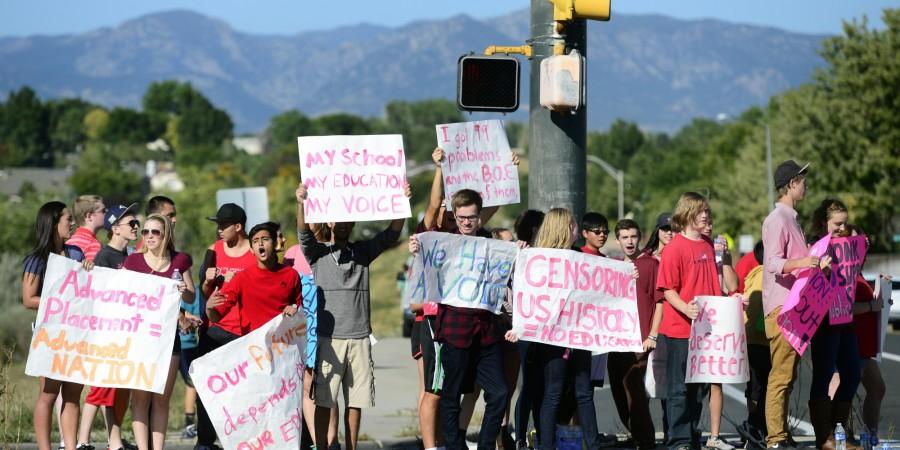A-PUSH against patriotism
Courtesy of huffingtonpost.com
Because of a high number of teacher absences, two Jefferson County Schools, Standley Lake High School and Conifer High School, have canceled classes on Friday, Sept. 19, 2014, and closed their doors.
November 6, 2014
The American Revolution. Slavery. The Vietnam War. In high school history classes, all are taught with enough emphasis to uphold the patriotic spirit of young Americans. However, a presentation that is filled with too much patriotism does not sound appealing for someone like me who has opinions against a conservative force-feeding of patriotism and biased information.
Perhaps to counter this, College Board had decided to dissolve any emphasis on patriotism and to prompt critical thinking from students by focusing more on controversial events in a prospective revised AP United States history curriculum. If the plans pull through, juniors throughout the nation will be the first subjects of the amended course next fall.
However, this revised curriculum has sparked outrage not only from conservatives but from those who support College Board’s decision as well. Overall I support the students from Colorado who rallied against Jefferson County School District’s decision to abort this anti-patriotic curriculum. Perhaps I may not know enough about politics to make the most informed or sagacious opinions, but I can understand that the students are making a peaceful effort to have some say in a curriculum that will most likely influence them as adults.
After all, many of us spent a majority of elementary school history class learning about the contributions of our infamous (and often white) fathers of the United States. While these people cannot be ignored, we as College Board students should be provided with a sufficient understanding of every side of our history. So far in my experience with the current APUSH curriculum, I have learnt more than I have in my past American history classes (and I’ve sat through my fair share of them.) Perhaps I hadn’t paid attention before, but there is much to learn about the controversial revolts of the lower classes and minority groups as well as about the more often-debated blunders of our mostly Anglo-Saxon government officials.
Of course, the curriculum should not present the “dark” or “controversial” information about our country in a way that would direct public sentiment against the government. I understand that there are some who think that a lack of any sort of patriotism will have young people joining terrorist associations. This may be a bit extreme, but I do believe that too much emphasis on the wrongdoings of our government will breed a lot of cynicism from our citizens that could potentially mean danger.
For this reason, many people, and not just conservatives, have the priority of national security on their minds when they object to the obliteration of patriotism. So it should be considered that most do not fight against a revised curriculum for the sake of political brainwashing. In the end, no matter if the course is amended to include more or less patriotism, we can take the resulting dissonance as a good indication that our future electorate is already standing up for its moral values.



